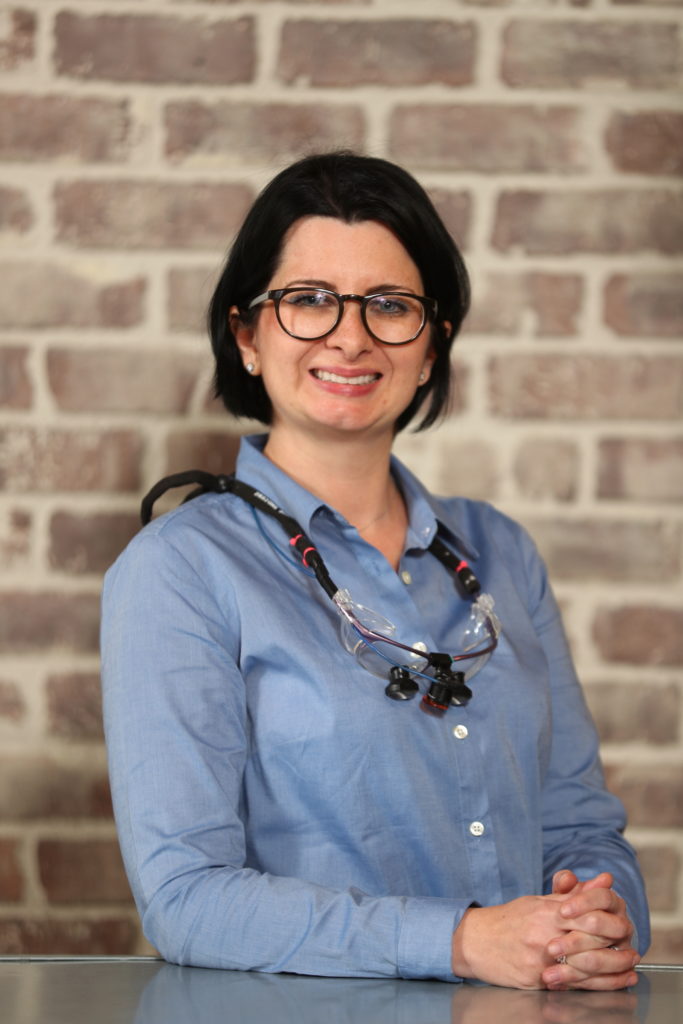Striving for vs. attaining perfection. Where do you fit in?
Dentistry in one of the few fields of study where what we create, as practitioners, is physical in nature. As a result of that, it’s easy for us to compare the fruits of our labor to photographs found in textbooks or ones referenced on the lecture circuit. All too often we lose sight of the fact that we work in a very unforgiving environment of a human mouth. We try to recreate the ‘Taj Mahal” of crowns in patients who are fearful, who wiggle and dance in the chair, who cough and spit during procedures, and who are constricted by finances. Furthermore, our fairy tale mouth rehabs are limited to an hour of chair time and are constantly interrupted by hygiene check, patient messages and the occasional compressor mishaps.
This idea of seeking perfection isn’t an instinct, but is rather self-taught and further reinforced by our educational background and consequently our practice. Growing into a relationship with what is perceived as perfect we suffer both physically – as we hunch overtime in tedious practice and emotionally – in lacking self acceptance and resorting to self deprication). And as we fail to produce the textbook endo, each and every time, we are unable to forgive ourselves and often forget that we, too, are human. We struggle with wanting to be perfect when we should realize we are just good enough being perfectly imperfect. As far as the quality of work is concerned: striving for perfection and attaining perfection are two very different things. In understanding and separating them, we can find more peace in our mind and satisfaction in our work.

How does it all begin?
As early as high school we begin in our pursuit of numbers. In those numbers we develop an anchor. We start chasing that ‘the high score.’ This doesn’t necessarily pertain to everyone, there are some very talented people out there to whom this won’t apply to; but I’d estimate that most of us, who have the seed in ourselves to seek higher education, any kind of graduate study, will end up making ourselves vulnerable to numbers.
In its infancy this relationship with numbers is fairly underdeveloped and as inexperienced and vulnerable students that’s when it’s initiated. At first it’s very unassuming. Higher grades in high school tend be received with much less study, than in college or professional school. As we keep those grades high, we gather the attention, and dare I say respect, of our parents, teachers and classmates. In time, chasing the A, becomes like a casino machine payout. Get an A: ding! ding! ding! And so, we keep chasing the payout. The other thing that begins during these formative years is a quest to be the number one, and looking at our peers as our fierce competition.
Maggie W. Augustyn, D.D.S.
The ease of high scores settles a bit in college. It’s a larger pool of thinking minds, chasing that same A. But as our plans toward graduate school sharpen, so must our grades. And once again: we chase the A, the DAT score, the ranking. Ding, Ding, Ding, goes the payout. Like an addiction. The anchor is established even deeper. As before, we continue to compete. Upon college graduation, having been habitually graded, we become comfortable with our anchor number. And this in turn, ends up tying to our self worth. It becomes automatic on our minds: high score produces a good day, it increases our self worth and a low score can lead to self loathing.
Each one of us comes up with a sort of scale of what that lucky anchor number. Is it a 3.5 GPA or 3.9 GPA? The higher the number with which we have this relationship, the more intense the pressure. And this goes on all the way thru dental school, who knows maybe even post grad. As does the peer rivalry. Our self esteem is at its peak as we gain that acceptance to dental school. That’s the we hear the biggest Ding! of all.
Once in dental school we may crash a bit. We are no longer that 5%, 10%, maybe not even top 25%. Now, we are all pretty much the same. Similar GPA, test scores, extracurriculars. Nothing to make us extraordinary. The Ding’s don’t come as often. Of course, as with everything, there are outliers, but most of us, are just average, smack down in the middle of the bell curve. And now what: does the occasional C, or mostly Bs cloud our self worth? No, we are forced to find a different type of anchor; we begin to tie our self worth to what we perceive to be the quality of our dentistry.
Remember that we have been chasing a number on a grading scale, we have tied our self worth to some anchor; we have tied our self worth to the act of being graded. Now comes the translation which starts with our preps being graded. Our endos being graded. We can see the tangible prep, its inclination, the uniform margins, the fill to the apex, or past the apex; and we start to grade ourselves.
Sometimes, we repeat in our minds what even our toughest critics wouldn’t dare to say. A dry socket can make us feel like a failure. A dry socket can make the patient look at us as a failure. And none of this is true! We replace the number grading system to which we tied our self worth to, with an anchor of biased self evaluation of the quality of our work.

How do you overcome it? How do you balance the scales?
We can ask ourselves: Can we do better? Can we produce more ideal dentistry, to increase the highs and eliminate the lows? Can we work harder at being perfect? It’s a simple answer, and the answer is: no. I think all of us do the best that we can, with the skill set that we have, with the procedures and materials, with the flow of the practice and with the quirky environment of the oral cavity. We care about our patients and we care about our reputation. So to say, that if we just became better dentists, our lows would be eliminated is unrealistic and erroneous and quite frankly impossible. It’s impossible to attain perfection, each and every time, maybe even ever.
Overcoming the desire to attain perfection: A how-to guide
First and foremost we must accept that we are perfectly imperfect. We must stop using our short crown margins and endo underfills as the definition for our self esteem. But how? As trivial as it may seem, allow me to restate: we must forgive ourselves for the imperfect. Not walk away from it, but simply forgive, and build on it. We tried our best, we may not have attained that grade-A endo fill, and we forgive ourselves. Or maybe, look at it this way, we give ourselves permission to be imperfect. Please understand that imperfect doesn’t translate into sloppy dentistry, nor is it substandard care.
Imperfect is simply what it states: not perfect, or at least not perfect each and every time. “I have permission to do the best I can, and still come short of what is ideal.” And as we have that permission, we also piggyback the fact that we have room to improve in the current clinical situation and in the future. If the endo fill isn’t ideal, we can redo it, or we can refer out to a specialist. We can choose more continuing education, which may lead to ease of practice. But in truth, neither a referral to an endodontist, nor an 8- hour course in the use of microscope will produce perfection every time. Accepting the idea of imperfection will keep us grounded. And in time will add humility. Because aren’t we just a bit arrogant to expect that every treatment we render be textbook worthy?
We must define and recognize our weakness.
We can’t turn weakness into a strength if we keep denying our weakness. A weakness can be a learning experience. But more so, we also can’t forget that imperfection isn’t a weakness, it isn’t even a characteristic… it’s an unavoidable reality. We have to acknowledge when we are being self critical and recognize that every emotion, serves a purpose; negative feelings are simply a way of receiving information. Having recognized a negative experience we give ourselves permission to be upset and to be regretful. And that’s how we stop it from becoming an exercise in self loathing. This entire exercise will lead to forgiving ourselves our shortcomings. When we are unable to forgive ourselves that’s when we forget that we too are human.
Another practice to follow is to make a commitment to celebrate! celebrate! celebrate! our strengths. If necessary, take a minute each day and write down what is celebration worthy. When receiving a compliment, take the time to marinade in it. Really, take a nominal 90 seconds and allow yourself to just be present. Let it seep in. Let it sink in. Stay mindful of it as much as you can all day.

Now, if none of those are working and if we are still really having a hard time with guilt or shame or other negative emotion: writing a note of apology to self can be very helpful.
And last, if your self critical nature is disallowing you from a mindful living, if your self loathing prevails, seek the help of a professional.
About the blogger
Maggie W. Augustyn, D.D.S.
Maggie W. Augustyn, D.D.S. is a practicing dentist with over 15 years of experience. She graduated from Benedictine University as a University Scholar and pursued her education towards a dental degree at University of Illinois at Chicago. She is a co-owner of Happy Tooth, a private practice in Elmhurst Illinois. She resides in Lombard Illinois with her husband and daughter. Contact her at dr_augustyn@yahoo.com
“Each day I try to be a better person than I was yesterday. The most rewarding part of life is cultivating and maintaining relationships, but more importantly helping one another navigate the turbulent times of our existence. My mantra is ‘Life Is Good’, even if you have to shift your focus and look for it, with the right skills and attitude life is nothing short of being an amazing gift.”



Leave a Reply